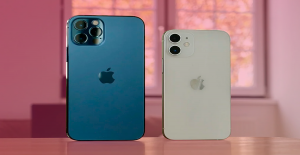This August 25, 30 years ago since the creator of the operating system of open source Linux, Linus Torvalds, announced for the first time that he was working on a new software, which is currently currently valid and that was used as a basis for the system for mobile Anroid.
Although the launch of its code did not occur until September 17, on August 25, 1991, the Finnish computer developer Linus Torvalds, which at that time was 21 years old, sent a message through an Internet Forum, Usenet.
In this message, Torvalds claimed that since April he was developing a free operating system "only as a hobby" and that it would not be "big or professional". The developer wrote the system expressly for a PC with 80386 processor, so it made it independent.
At that time, he asked the community community to give him his opinion to help him, and he believed that he could not behave other systems and that "he will probably never have support for other teams" that were not the AT hard drives that Torvalds himself used .
After publishing the software in 1992 with open source license, the developer community began working on the system, the use of Linux was extended worldwide, by the possibility of using it as embedded system, from computers to other devices E Even the cloud, with popular distributions such as Debian, Fedora and Ubuntu.
Among the subsequent milestones of the operating system, Google used Linux as a basis for its intelligent mobile operating system, Android, which began to be developed in 2003 and used as a Linux base 2.6.
In 2005, Google bought Android and presented the definitive system in 2007. The Android development system is also open source, as it was already happening with Linux.
Likewise, in 2019, Microsoft bet on the integration of Linux into its Windows 10 operating system with the release of the Windows 10 or 'Kernel' subsystem based on Linux.
It is a developer tool that facilitates emulation tasks, and supposed the presence of this component natively for the first time in the Microsoft system, traditional Linux rival.
Date Of Update: 05 September 2021, 05:46











